- Home
- Fish Identification
- Ciguatera Poisoning
Ciguatera Poisoning: What Is It and How Can You Avoid It?
I don't wish to be alarmist here but it's not good news, ciguatera poisoning. You can get it from eating fish that host ciguatoxin. But what is it, and where does it come from? And most importantly, how can you avoid it?
But unless you eat fish from tropical or subtropical seas there's no need to get too excited about it at all, as it's only the fish from these warmer waters that can become hosts to the ciguatoxin.
And thankfully, not all tropical and subtropical saltwater fish get it.
It depends on what type of fish they are, what they feed on - and where they feed.
As someone who sails and fishes regularly around the Caribbean Islands, I take the possibility of ciguatera poisoning very seriously.
So far, touch wood, I've not had it but I know someone who had a relatively mild dose. Believe me, she didn't enjoy it one little bit...
How do some fish become hosts to ciguatoxin?
It all starts on tropical reefs, where ciguatoxin-bearing micro-organisms proliferate and make their way into the food chain.
Tiny reef fish ingest the toxin, who then get eaten by larger fish and so it goes on. For some reason, it seems that fish are incapable of ridding themselves of the toxin, and although it causes the fish no harm at all, it accumulates in their flesh.
As a result it's the older, larger fish that carry the most ciguatoxin and represent the greatest danger to us humans who dine upon them.
How can you tell if a fish is carrying ciguatoxin?
You can't. A fish with the toxin looks the same, smells the same and even tastes the same as on without it.
There's a lot of local folklore about simple tests for the toxin, along the lines of 'lay a silver coin on the fish and see if it goes black', or 'cook sweet potato with it and see if it changes colour'.
Another bit of 'advice' is that you should leave a piece of fish out in the open. If the flies won't settle on it, it's got ciguatera. Having seen what flies are willing to settle on, I'd certainly treat this with a degree of scepticism!
In fact, none of these 'tests' have any basis in science and are downright dangerous if treated with anything but total disdain.
If you have access to a disposable cat or dog, you could give it a piece of the fish and watch what happens. More reliable this approach, but unlikely to endear you to anyone who finds out about it.
How will I know if I've got ciguatera poisoning?
Believe me, you'll know. Even a mild dose of ciguatera poisoning will leave you feeling distinctly unwell. Symptoms will usually arrive within 3 to 5 hours of eating the fish and might include:~
- stomach ache
- head ache
- dizziness
- vomiting
- diarrhea
- general numbness
- a tingly sensation of your arms and legs, and around your mouth
For a severe dose, expect all of the above, plus:~
- muscle pain
- tooth ache
- blurred vision
- hair loss
- loss of nails
- cold things will feel hot and vice versa
In the most severe cases, this may be followed with muscle paralysis, coma and eventual death through respiratory paralysis.
If you survive, recovery can take months and some symptoms may linger for years.
What can I do to get rid of ciguatera poisoning?
'Not much' is the unfortunate answer. OK, there are one or two things you can do to reduce the symptoms - drink plenty of water, induce vomiting to rid the body of as much of the toxin as you can, and take an infusion of Mannitol being the documented advice.
But I'm no doctor - you should seek qualified, professional advice immediately you show the symptoms of ciguatera poisoning and not rely on anything you read here.
How can I avoid getting ciguatera poisoning?
The obvious answer is 'don't eat fish' - but that would be an extreme measure of risk mitigation. However there are several parts of a fish that you should never eat. They are:~
- the liver
- the gills
- the guts or any other internal organ
...and never, ever eat any part of a moray eel.
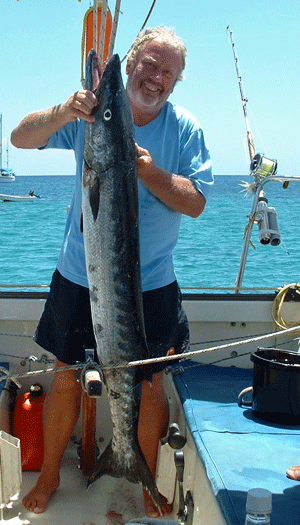
The risk associated with ciguatera poisoning is often localised - fish from with one reef can be infected, whilst those from another a few miles away can be entirely free of the toxin.
Hence local knowledge must be gained before eating any local fish. If the locals won't eat a fish of a certain species or above a certain size, then neither should you.
For example, in the West Indies we eat small barracuda (less than 30 inches long) caught south of Martinique, but wouldn't look at one of any size in Guadeloupe or the islands to the north.
This one we caught off Carriacou (an island to the north of Grenada) where local advice is that ciguatera poisoning isn't an issue.
But because of its size we didn't risk it. We gave it to a local man from Hillsborough, who shared it with several families - and very grateful they were too!
Which fish most often carry ciguatoxin?
Pelagic fish of the open ocean, far from tropical reefs, will be clear of ciguatera. The offshore fish we most regularly catch on the trolling lines towed astern of our yacht Alacazam include dorado (mahi mahi), tuna and wahoo which we have little concern about eating.
The most likely species to carry the toxin include barracuda, grouper, snapper, jacks and moray eels. Amberjack, kingfish, parrotfish, surgeonfish, triggerfish, filefish, and porgy are also susceptible, but generally to a lesser degree.
My advice?
This is not an exclusive list, but it's a guide that should keep you out of trouble:~
- Seek out, listen and adhere to local advice.
- Avoid eating large fish of any species that are known to host the ciguatera toxin.
- Only eat the flesh of the fish - never its liver, gills, guts or any of its other internal organs.
- Make sure to clean all fish thoroughly before cooking.
and finally...
Neither cooking the fish nor deep freezing it will affect the toxicity of a fish carrying ciguatoxin.
And remember how the toxin accumulates over time in the body of a fish? Well, it does the same thing in humans.
So one day, after eating a fish only very mildly toxic, your internal scales could be tipped - and not in your favour...
Ciguatera poisoning is dangerous - take chances with it at your peril!
Recent Articles
-
Sea Fishing Rods and Reels Must Be Compatible for a Balanced Outfit
Mar 08, 21 08:30 AM
A quality reel fitted to a quality rod doesn't necessarily make it a quality outfit. Your fishing rods and reels have to be properly matched if you're to get the best out of them, and here’s how -
Essential Lure Fishing Tips That All Saltwater Anglers Should Know
Mar 08, 21 04:51 AM
Which single lure fishing tip applies to trolling, jigging, baitcasting, spinning, fly fishing and any other branch of lure fishing? Well, it is the one at the top of this list -
Vital Jig Fishing Tips That You Really Cannot Afford To Miss!
Mar 07, 21 10:20 AM
Essential jig fishing tips to help you select the right lure for successful jig fishing, together with the techniques required to get the most out of your jig fishing outfit
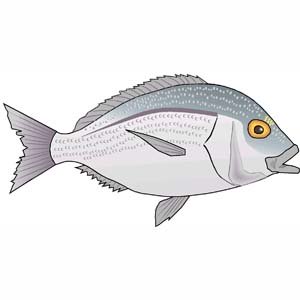
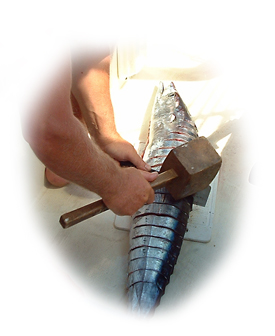










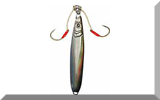
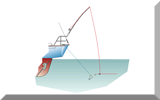

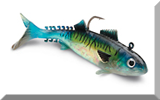




New! Comments
Have your say about what you've just read! Leave me a comment in the box below.